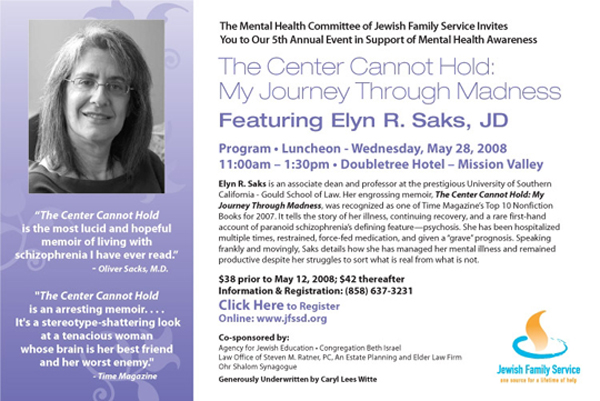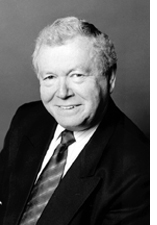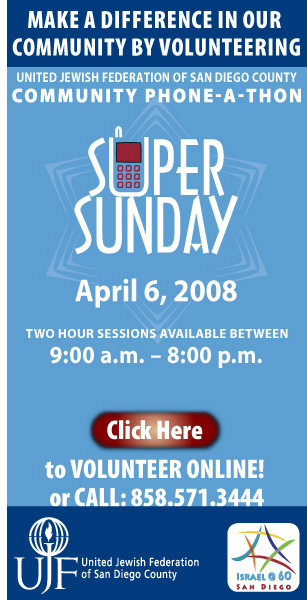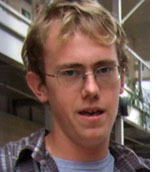

Please click on ads to visit their respective organizations' websites.


LETTER FROM JERUSALEM
U.S. economy, Mideast tensions respond
to cycles of emotion and excesses
By Ira Sharkansky
 JERUSALEM--Figuring out what is happening with respect to Israel's problems with the Arabs is like figuring out what is happening in the American economy. JERUSALEM--Figuring out what is happening with respect to Israel's problems with the Arabs is like figuring out what is happening in the American economy.
Both have been marked by periods of calm, and both have seen their years of crisis.
Israel is affected by the numerous perspectives among Arabs, including intense Islamists and nationalists, and competition between them. There is always a faction that sees violence as the way to its paradise, against what may be a majority who are content to live alongside of Israel at peace.
American investors are perennially threatened by individuals and institutions that cannot stop pursuing a good thing to the point where it becomes absurd. The image holds for the dot.com meltdown of the early 2000s, and for the sub-prime disaster mixed with the packaging of complex financial instruments that analysts have trouble understanding and evaluating.
Hopefully, we have entered a period of relative calm in this part of the Middle East. If so, it may come from Israel's willingness to use a bit of its power. One hundred and twenty deaths in Gaza over the course of a few days, against two Israeli deaths, and continued shortages of fuel, electricity, food, and clean water may have convinced enough of the Hamas leadership and their allies that violence does not produce what they hoped.
Just about every day we hear dire threats from Hizbollah leaders in Lebanon. So far the border is quiet, and there has yet to be an attack against an Israeli or Jewish facility overseas. The calm may end sooner rather than later. But it may reflect more than 1,000 Lebanese deaths in 2006, and the substantial destruction in Shi'ite areas of the south and Beirut. Against Hizbollah bombast, Israeli sources have said that an attack on the north or an overseas facility will produce more destruction in Lebanon.
The Israeli choir that laments the lack of IDF success in the 2006 war may be singing the wrong tune.
In the case of the American economy, and this part of the Middle East, it is difficult to know just when a crisis has passed. And it is impossible to find a period of more than a few years of prosperity/quiet between crises. The time frame for Israel goes back to the beginning of the 20th century. The American economy has shown busts far back into the 19th century.
In both cases, there has been boom after bust. The American economy retains the strength of its size, and until now has bounced back from its excesses of greed, stupidity, and corruption. Analysts who admit to being baffled by the most recent manipulations of entrepreneurs say that investing in common stocks pays off in time.
Despite the chronic threat of violence, Israel is arguably the most successful of the 100 or so countries born in the aftermath of World War II, both in the quality of its democracy and the extent of its economic development. The World Bank ranks it as one of the world’s wealthiest countries, albeit toward the bottom of that league. All of Israel’s universities appear on a recent list of the 500 best in the world, and half of the country’s universities appear on lists of the 150 best. I know of no old country whose universities do as well collectively.
Israel's Arab minority scores closer to the Jewish majority on measures of income, health, and longevity than do African-Americans with respect to whites in the United States. On measures of health and longevity, Israeli Jews and Arabs do better absolutely than American whites and African-Americans.
Israel’s democracy is notable for its competitiveness and openness to internal criticism. For those who read the op-ed pages of daily newspapers that emphasize the problems and the dangers, it is difficult to believe that the country has survived.
Neither the American economy nor the Israeli polity can rest assured. American ideas of individual freedom and minimum government provide the opportunities for unlimited foolishness as well as creativity.
Israel lives in a region soaked with extreme varieties of religion and nationalism, along with an Arab mass that can turn quickly to focus on the Jews as the source of all that is evil.
Israel’s leaders muddle through a number of unpleasant alternatives. They cope with attacks on their civilians by a limited use of their military power. Pacifists, humanists, and anti-Semites do not see 120 deaths in Gaza and more than one thousand in Lebanon as "a limited use of military power." Among the factors that keep those numbers lower than they might be is the intolerance of the United States and European countries for prolonged campaigns of Israeli self-defense; and a concern for humanitarian values that affects Israelis as well as others.
Israeli leaders, and Americans with responsibilities for economic control, should give up on the dream of solving their country's problems once and for all times. A period of calm that last for days, or ideally weeks, months, or years is the most they should expect.

Please click on Jewish Family Service ads above or below to visit its website


FROM THE SIDELINES
Christian liturgy profoundly impacts Jews
By Rabbi Dow Marmur
 JERUSALEM—Cynics describe anti-Semites as "persons who hate Jews more than necessary." The reference is probably to the teachings of the church that deemed it "necessary" to despise and humiliate Jews in order to show the world what happens to a people that rejects Jesus Christ. JERUSALEM—Cynics describe anti-Semites as "persons who hate Jews more than necessary." The reference is probably to the teachings of the church that deemed it "necessary" to despise and humiliate Jews in order to show the world what happens to a people that rejects Jesus Christ.
The Nazis took a further, deadly step. In their secularized racist version, they hated Jews "more than necessary" and murdered 6 million. Many custodians of Christian teaching – Catholics and others – were horrified when they saw the connection.
The Holocaust came thus to have a profound impact on Christian theology. It has led to many fundamental changes. For example, phrases were eliminated from the Catholic liturgy for Good Friday that called on God to "remove the veil" from the hearts of Jews and "to end the blindness of that people that acknowledging the light of thy truth, which is Christ, they may be delivered from their darkness."
 These words are not to be found in the prayers in the vernacular, recited today by the overwhelming majority of the world's Catholics. But as a Latin version was reintroduced this year for the benefit of those who wanted to return to the indigenous language of the church, a new formulation found its way. It calls on God to "illuminate their hearts" so that Jews may acknowledge that "Jesus Christ is the saviour of all men." These words are not to be found in the prayers in the vernacular, recited today by the overwhelming majority of the world's Catholics. But as a Latin version was reintroduced this year for the benefit of those who wanted to return to the indigenous language of the church, a new formulation found its way. It calls on God to "illuminate their hearts" so that Jews may acknowledge that "Jesus Christ is the saviour of all men."
Many Jews were distressed and some of their leaders protested. Sensitive to the fact that Pope Benedict XVI was born in Germany, the cradle of Nazism, rabbis there have urged him to withdraw even this modified Latin text. Their colleagues in Rome, the Pope's neighbours, have called for a "pause" in the dialogue with the church.
American Jews seem to be less worried. Rabbi Irwin Kula, the head of a Jewish educational network, observed that "a very small minority of Catholics saying these words in 2008 is very different in its threat to Jews than every Catholic saying these words in 1668." But he added that "there is something sad about a world religion with more than 1 billion people feeling so insecure that in 2008 it needs to put back into a prayer recited on one of its holiest days a call for another people, one barely 15 million strong, to see the light."
Rabbi Jacob Neusner, cited at length in the Pope's latest book, suggests that Judaism too has a prayer expressing the hope that others will come to share in its truths. Therefore, there's no reason to deny Catholics the same privilege.
However, there's a fundamental difference. Jewish prayers have, mercifully, never had the consequences of Catholic prayers. For even in my childhood in post-war Poland, Easter was a particularly dangerous time for us because when our neighbours came out of church they were tempted to hasten redemption by beating up Jews. It therefore behooves Catholics to be sensitive to the implications of what they say to God in any language.
The current Pope is a theologian who, for all his schooling in modernity, seeks to reaffirm the traditional teachings of the church and that includes the hope that Jews will see the light and embrace Christianity.
In different ways, fundamentalist Protestants harbour similar sentiments, even when they couple them with a staunch and at times militant commitment to the State of Israel.
As a Jew I'm troubled by it all. Therefore, I appeal to all my Christian friends to be careful for what they pray and vigilant against the temptation to hate Jews, even if it's "only" as much as "necessary."



Please click on the schools' ads to visit their respective websites


SDJA STUDENT QUARTERLY
Editor's Note: Two stories that appeared in the current edition of SDJA Student Quarterly, written by students at San Diego Diego Jewish Quarterly, offer a stark contrast. In one, Emma Tuttleman-Kriegler tells about the hostility she encountered as a Jewish student at a school in Switzerland. In the other, William Bohannon, a graduating senior, tells about his favorable experience as a non-Jew at San Diego Jewish Academy.
Overseas anti-Semitism stuns student
By Emma Tuttleman-Kriegler
 SAN DIEGO— I went to Switzerland in January 2008 to a boarding school. Now, however, I am back at SDJA. Why? Among a number of reasons was that the following "jokes" were a typical lunch conversation among my new "friends" at the high school. SAN DIEGO— I went to Switzerland in January 2008 to a boarding school. Now, however, I am back at SDJA. Why? Among a number of reasons was that the following "jokes" were a typical lunch conversation among my new "friends" at the high school.
Q. What's the difference between Jews and pizza? A: Pizzas don't scream when you place them in the oven.
Q. How do you get 100 Jews into a car? A. You throw a quarter into it.
Q. How do you get them out again? A: Tell them Hitler is driving.
If you were the only Jewish person at a table with ten other kids all laughing hysterically, lining up with yet another and another anti-Semitic joke, what would you do?
It would depend on the person in the situation. Defensive or passive, you might react angrily or just freeze up. But whatever kind of person you are, if you are Jewish, these jokes hit close to home.
It's hard to describe the social dynamic at the Swiss boarding school I briefly attended. Just from scanning the cafeteria where to sit, it was apparent that the international school wasn't as culturally integrated as I had hoped it would be. In this cafeteria, you could seldom find a place where a Jewish girl from Southern California would feel comfortable. To the farthest left of the room sat the haughtily-dressed European and European-background boys from Brazil, Spain and Italy. Next to them was where the more central Europeans, kids from Austria, Germany and the Ukraine, resided. Sitting in the middle were the students from the Middle East, including Iran, Iraq, Kazakstan and Uzbekistan.
Then there were the Americans, who seemed generally more social than the rest of the supercilious students in the cafeteria, but there was the same resistance to newcomers as I felt with the other nationalities. Nevertheless, I sat with the Americans.
I'm just realizing now that for better or worse, I wanted people to get to know me better. The topics of religion, place of origin, and language always come up in a place like that, and I openly shared that I spoke Hebrew. That led people to ask, "Are you Jewish?" I replied yes. I was the first Jewish person many of these kids ever had met.
It was mostly these Americans who persisted with the anti-Semitic and Holocaust related jokes. The girls were enjoyable, charismatically laughing, and throwing bits of food from time to time. These kids seemed harmless and fun-loving. I never expected such narrow-mindedness out of these girls and others whom I associated with.
Sitting there with these kids, thinking about my years at Hebrew school and SDJA, I felt a lot of things. I was embarrassed for them for being so ignorant. I know that this is something they were taught, not something they were born with. Now, I especially felt ashamed for not standing up for myself. Trying to fit in with these kids, and standing up for myself created a tremendous conflict within me. I kept to myself and only shook my head if someone asked if the jokes offended me. I tried to be polite and smiled.
This anti-Semitic tension wasn't just present during social hours, but in the classroom as well. I signed up for a Comparative Governments and politics class, which I thought would complement my reasons for going to the school. A few weeks into class presentations on social and political aspects of a country, Iran was the nation of dissection. The topic of the country's relations with Israel was a tangent that in the remaining five minutes of class mounted into an Israel-hating rally.
Commenting on the Israeli-Palestine conflict, students would boldly shout out, "Israel is the cause of all the world's problems!" "Israel is a big bully!" I asked Mandy, the girl sitting next to me from Saudi Arabia, "Why do you think that?" Condensed she replied, "The Jews are just kicking people out of a place that isn't even theirs, and bombing everyone that stands in their way."
I was stunned. I didn't know what to say back to Mandy. All I could come up with, from probably 16 years of learning about Israel, was a mere, "Israel has a right to that land just as much as everybody else does."
That's it. That's all I could say. Nothing was more frustrating than not being able to articulate the right words to defend my people's homeland. The class was so up in arms about the whole thing anyways; I didn't even have time to get in what I could have said. The teacher even had a difficult time controlling the students. He was saying, "Try to see Israel's point of view." He looked at me and our eyes agreed that neither of us knew what to do. Things that those kids said in Politics and Government will live with me forever.
This experience showed me many things about how this world works outside our Jewish community. I learned that we, as Jews, are not accepted everywhere. If you are Jewish living in Russia, you are not Russian, but are a Jew. I've studied the pogroms in 20th century Europe during Judaic Studies classes, but wasn't aware their lasting effects are still present today. Even if you're wealthy, with a high level education, prejudices still exist. These nationalistic, anti-Israel, ideas have been deep-rooted in peoples' upbringing and culture.
I also realized that mixing cultures and nationalities is a very enlightened, Americanized idea. Here in California for example we seem to integrate well with our neighbor Mexico and many other immigrants from around the world. We are lucky to coexist as we do.
So when traveling to other countries, it is essential to represent your country's positive values. If you get the chance, educate someone and stand against things you know are wrong. From my experiences, the world still will be plagued by ignorance. And it is our responsibility as future leaders of the world to represent a peaceful and tolerant mankind.
What is SDJA like for non-Jewish student?
By Will Bohannon
 SAN DIEGO—I first came to San Diego Jewish Academy through Gateways, a summer learning program. It was the summer after eighth grade; I attended with a friend who had taken classes at Gateways before. Somewhere along the way my mom seemed to like the school and the campus and decided to find out about my going to high school here (despite my not being Jewish), as I didn't have a lot of good options due to my upbringing and personality. For me, a public high school was a sad impossibility. SAN DIEGO—I first came to San Diego Jewish Academy through Gateways, a summer learning program. It was the summer after eighth grade; I attended with a friend who had taken classes at Gateways before. Somewhere along the way my mom seemed to like the school and the campus and decided to find out about my going to high school here (despite my not being Jewish), as I didn't have a lot of good options due to my upbringing and personality. For me, a public high school was a sad impossibility.
I have lived a very sheltered life, more or less always having someone I knew nearby and at the point of first coming to SDJA, I hadn't been to a 'regular' school for three or four years. I left public elementary school after the third grade enrolling in an odd private Scientology school in La Jolla. After that, I was pretty much home schooled through the eighth grade, at Christian home school.
Furthermore, I just have this bizarre personality with the most freakishly-odd clothing style choices. Approaching life with a constant self-criticizing opinion and having such a strange look in general, I am prevented from being a strong person in the social sense. At SDJA, however, my sideshow didn't hinder me in the hearts of kind Jewish people, who I quickly found weren't made of candy. But then again, why would you want to be made of candy, everybody would eat you.
Yeah, I may have a low opinion of myself but, in the above obviously lays a banal, weakly-carried attempt at comedy. In truth my first real day at SDJA happened during the football team's double-practice week. I was there the last day and was completely unprepared. The sky seemed to be the awful harsh brightness reddening my china white skin glinting off my absurdly bent and taped glasses. I was, of course, instantaneously shy and drawn back upon myself, never really being good at being outspoken. I proceeded to watch the team for the next two or three hours, as there was nothing else for me to do. I walked in circles the entire time not knowing what else to do, as if I was some robot whose programming was caught in a hideous eternity loop. But it was these people who became my first acquaintances at SDJA, the football team. Without them, who knows when I would have actually started to get to know people at the school, considering my lackadaisical social skills?
Probably the most comforting time upon my arrival to the school was when we had the speech from Dr. Jeff Davis (the high school principal) about how we're paying so much money for a good school experience. There I was told how at this school all the awful things I had heard about at other schools wouldn't happen; such as, being thrown into a trash can, or getting mugged or whatever. Later, I got to meet some other kids from the school who seemed nice enough, though I remember brusquely leaving the group in an attempt o figure out the school map on my own and gathering that my previous experience with the summer school at Gateways would serve me well enough.
But, it is the fact that I am not Jewish that makes some people wonder, why this school? Really, it wasn't until Sukkot that some people started to find out I wasn't Jewish, as I knew nothing of the Jewish holidays. Hebrew was fun, the first day, first not knowing what is going on, and then going to another Hebrew class and being asked what my Hebrew name was. Learning Hebrew, in Hebrew One, with a surprisingly large amount of other students without any background in it, without parents or relatives or at that time friends who spoke it, was really interesting.
Despite this I have never felt like the whole Jewish thing was being pushed on me, like they did with Christianity at the Christian school. Not knowing anything didn't really hinder me either as I got to take a lot of Judaica classes. I don't care much, as either way; going to the school has introduced me to the religion which I have enjoyed very much. But I didn't experience any real mind-blowing things here other than the religion. I didn't have any pre-SDJA ideas about Judaism except a couple of the holidays and maybe the kippas and shalom, and of course the Holocaust. I mean, at SDJA I really first heard about anti-Semitism and what those types profess.
What I am saying, what are the chances anyone will actually read all the way to this point in the story and actually care without thinking, 'Dammit, another line to read: how much can one social outcast write before it cries itself to sleep', Judaism is there but the kids are kids, albeit nicer than most I have met. They do the same stuff as other kids, they act the same. Judaism exists here but it isn't really pushed on you, no one forces me to believe anything, and with all the studying I have to do I really only notice the holidays. At this point I am more or less used to it, I know a bit of Hebrew, I know some of the prayers and the holidays. As I never had any real qualms with the religion to begin with, the transition seemed natural and smooth. Overall, I think my mom made a good decision.

SAN DIEGO JEWISH WORLD THE WEEK IN REVIEW
Cynthia Citron in Los Angeles: Harry Boychick has a raucous bar mitzvah every Sunday in interactive Hayworth play
Peter Garas in Canberra, Australia: Israeli historian's theory on origins of Jewish people has important implications
Donald H. Harrison in San Diego: 'Brain Death Bill,' conversion to Judaism highlights in life, career of Dixon Arnett
J. Zel Lurie in Delray Beach, Florida: Obama's speech on race compares with John Kennedy's talk on his Catholicism
Rabbi Dow Marmur in Jerusalem: The plight of Christians in Arab states
David Strom in San Diego: Chabon's latest is a fast-moving mystery that raises troubling quesitons for Jews
Donald H. Harrison in Oceanside, California: The real importance of the Easter bunny
Natasha Josefowitz in La Jolla, California: The 'clonal effect' in Election 2008
Lloyd Levy in London: Ongoing hostility to Israel in British media
Sheila Orysiek in San Diego: Bella Family: The Revolt of the Cousins
Jay A. Waronker in Maputo, Mozambique: Restoring a synagogue in Mozambique
Carol Davis in Vista, California: You never can tell... or should you?
Donald H. Harrison in Rancho Santa Fe, California: Mom, 80, helped arrange surprise party for her 80-year-old son, the writer
Dov Burt Levy in Salem, Massachusetts: Issues in the wake of terror last forever
Janet Tiger in La Jolla, California: Sculptor Shirley Lichtman becomes subject of JCC art exhibit only a day after her death
Gidi Yahalom in Kibbutz Beit-Alfa, Israel: Pig's Testimony: Why Jews Don't Eat Pork
Judith Apter Klinghoffer in Cherry Hill, New Jersey: McCain's foreign policies score with Jews
Rabbi Baruch Lederman in San Diego: Harry S Truman: The American Cyrus
Rabbi Dow Marmur in Jerusalem: John McCain: A true friend of Israel
Sheila Orysiek in San Diego: The Four Big Questions; One Great Answer
Rabbi Leonard Rosenthal in San Diego: Purim riddle: Did Tanakh predict baseball?
Ira Sharkansky in Jerusalem: Palestinian-Israeli friction points range from cell phones to the right of return
Thursday, March 20, 2008 (Vol. 2, No. 69)
Carol Davis in San Diego: Music, dance numbers overcome tedious plot lines in Globe's Dancing in the Dark |

 —
—